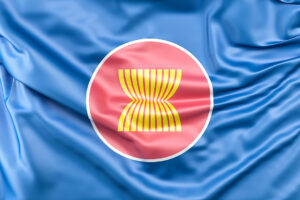JAKARTA – Indonesia and Singapore condemned an attack against a convoy including Association of Southeast Asian Nations (ASEAN) officials delivering humanitarian aid in Myanmar and called for an end to violence in the strife-torn country.
It was unclear who was behind the incident that, according to Indonesian foreign ministry spokesperson Teuku Faizasyah, took place in Hsi Hseng township in the western Shan State and targeted the convoy including officials from the ASEAN humanitarian assistance centre.
Myanmar has been trapped in a spiral of violence and economic turmoil since the military overthrew an elected government in 2021 and launched a brutal campaign to crush dissent.
Intensifying military attacks and clashes with armed resistance movements across the country have prompted calls, including from Myanmar‘s ASEAN neighbours, to end hostilities and allow access for humanitarian aid.
Two staff members of the Singapore embassy in Yangon who were part of the convoy were safe and had returned to the city, a spokesperson for Singapore‘s Ministry of Foreign Affairs said.
“Only constructive dialogue among all key stakeholders in Myanmar can facilitate a peaceful solution in the interests of the people of Myanmar,” the ministry said in a statement.
Indonesian President Joko Widodo did not give details of what he called a “shootout” but said it would not deter efforts by Indonesia and ASEAN to push for peace in Myanmar.
“Stop using force. Stop violence because it’s the people who will be victims. This condition will not make anybody win,” he said, adding that Indonesia encourages all stakeholders to have a dialogue and find solutions.
Myanmar‘s shadow National Unity Government, which is allied with the anti-junta militias, the People’s Defence Forces (PDF), said it was not involved in the incident.
The PDF did not immediately respond to a request for comment.
A spokesperson for the Myanmar junta did not respond to a request for comment.
Indonesia has for months been quietly engaging the Myanmar junta, shadow government and armed ethnic groups to try and kick-start a peace process, its foreign minister said last week.
The United States Department of State condemned the attack and called on Myanmar‘s military regime to implement ASEAN‘s Five-Point Consensus, including ceasing its violence and enabling unhindered humanitarian access.
It also called on Myanmar to abide by its obligations under international humanitarian law, including rules on the protection of diplomatic personnel and civilians. – Reuters

